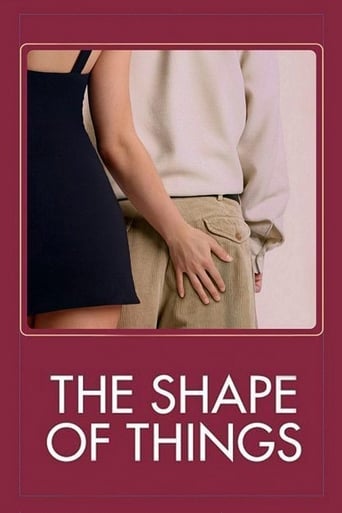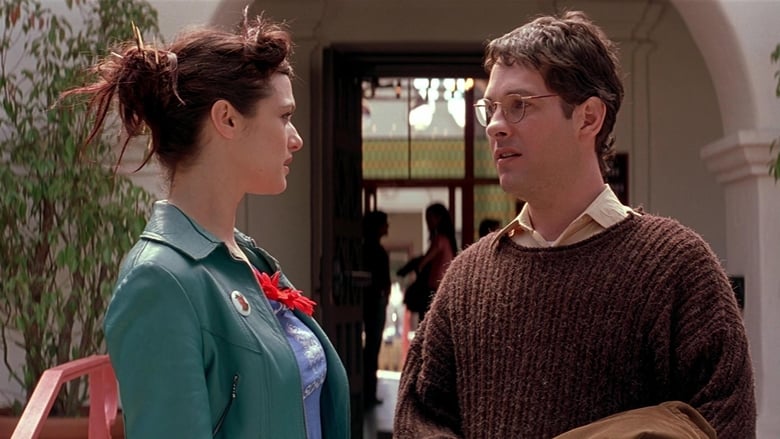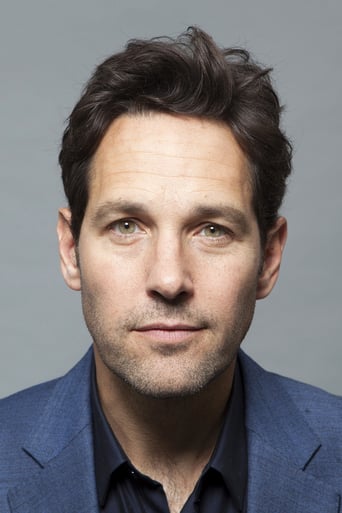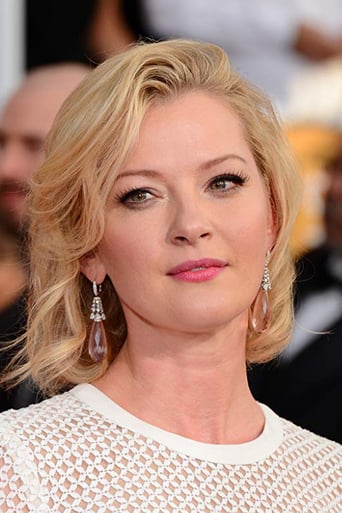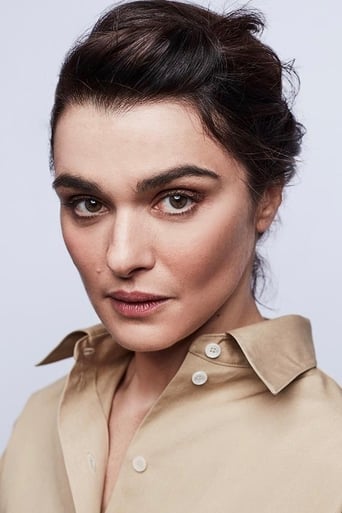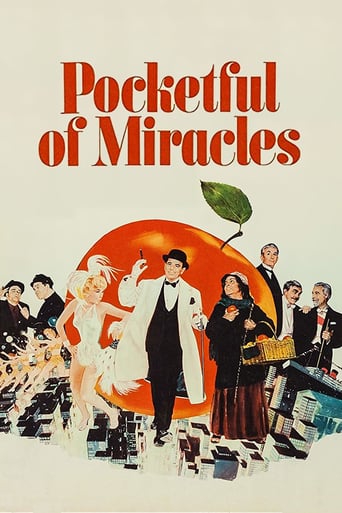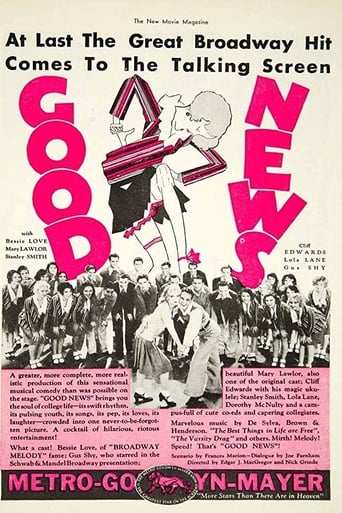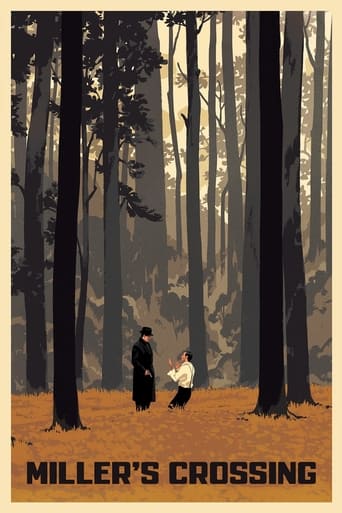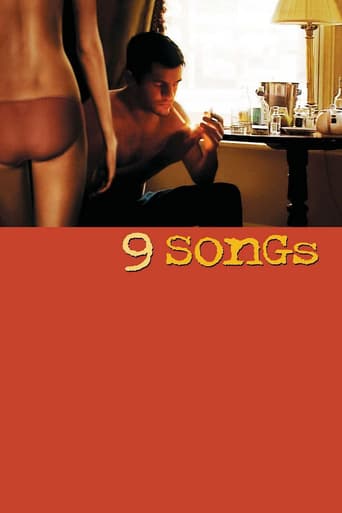The Shape of Things (2003)
Quiet, unassuming Adam is changing in a major way, thanks to his new girlfriend, art student Evelyn. Adam's friends are a little freaked by the transformation.
Watch Trailer
Free Trial Channels
Cast


Similar titles
Reviews
I am only giving this movie a 1 for the great cast, though I can't imagine what any of them were thinking. This movie was horrible
Clever and entertaining enough to recommend even to members of the 1%
The story, direction, characters, and writing/dialogue is akin to taking a tranquilizer shot to the neck, but everything else was so well done.
The film's masterful storytelling did its job. The message was clear. No need to overdo.
Neil Labute's "In The Company of Men" stars Aaron Eckhart and Matt Malloy as Chad and Howard, a pair of mid-level corporate executives sent to a boring regional branch for six weeks on a short term project. Frustrated, recently burnt by women, stuck in a career rut and high on corporate testosterone, the duo hatch a plan. "Let's hurt somebody," alpha-male Chad says. Pretty soon they're cooking up a Machiavellian scheme to locate an insecure woman, date her simultaneously, and dump her in the most vicious way possible. The woman they set their sights on is handicapped co-worker Christine. Christine has a speech impediment, but what she says doesn't matter to Chad anyway. Denied a voice, Chad handles her like an object to be acquired, traded, owned and discarded.Labute is heavily influenced by David Mamet. Most of the film finds Chad spewing corporate maxims, strutting about like a Master of the Universe and forcing co-workers to grovel at his feet. Eventually its revealed that Chad's scheming extends even to his "friend" Howard. He's your classic Extreme Sociopath, charming but endlessly manipulative. Everyone's his puppet. And as with Mamet's "workplace flicks", Chad's less a character than an extreme manifestation of a corporate logic whose drive for profit, ownership and expansion slowly infects how everyone around him thinks, acts and feels. Eventually Chad becomes both a norm and standard to aspire to. He's the new hypermasculinist ideal, for whom humiliation, domination, degradation, exploitation and suffering conflate with success. It's not only that aggressive competition in business affects masculinity, romance and sexual behaviour, but that corporate logic magnifies power, the ego and sanctions what is essentially various forms of rape. This stance is the opposite of how contemporary ideology is (mis)perceived, in which "business" is seen to be "neutral" and "mutually beneficial".Chad's a character who's popped up in many films and stories. More interesting is Howard, a fairly meek guy who is corrupted and made to do things even more horrible than Chad. The real world is made up of Howards. Chad's the anomaly, existing always more as spirit or underlying drive.La Bute penned "The Shape of Things" as an attempt to reverse the gender roles of "Company". Arguably his best film, it's also part of a tight trilogy by Labute about people's perceptions of physicality ("Fat Pig", "Reasons to be Pretty", "Shape of Things"). Massive spoilers ahead."The Shape of Things" initially unfolds like a conventional romantic comedy. We're introduced to a dishevelled English Literature student called Adam, played by the always likable Paul Rudd, and an attractive art student called Evelyn (Rachel Weisz). The film then becomes a modern version of Adam's seduction by Eve. Eve ensnares Adam, manipulates him into becoming "fit", "attractive" and "healthy", and then reveals that she has never had romantic feelings toward him; she was merely using Adam as a sort of living art installation, a clay puppet, deceptively sculpting and moulding his mind and body. When Eve reveals her scheme to Adam – she invites him to an art installation in which he is quite literally presented as an exhibited object, her gaze now likened to the masculinist gaze of "In The Company of Men" - he's dumbfounded. Eve's tricked him into getting cosmetic surgery and altering his personality and physique. She's reconstructed him. Treated him as a chunk of malleable flesh.Unlike "Company", we're then invited to work our way through the messy ethical minefield of the victimiser's actions. For while Chad deservedly gets no sympathy in "Company", the relationship in "Things" is much harder to work out. Is Adam now a better person? Was Eve's love, no matter how virtual, beneficial to Adam? Was it ever real? How much authority should be given, or do we give, to artists? How much ethical responsibility do they hold or exercise? How do power relationships within romantic couples overlap with the power we grant artists? Don't Eve's actions echo the sexism of "Compny"? What is acceptable artistic material? Do the means, in art, justify the ends? At what point does creation become manipulation, is manipulation ever justified and at what point does creation destroy (see "Vertigo")? Is Adam now a beautiful work of "art" despite Eve's actions? How do Eve's actions differ from other vampiric artists, who take from and/or abuse outside sources? What does the film say about romance and the lover's desire to alter their partner? Art may be made by monsters, but what about the audience who enjoys? And on and on it goes.The film features a shot of the sentence "There is no morality in art". The quote's by Chinese novelist Han Suiyin, and is stencilled over Eve's art gallery. Throughout the film Eve articulates a similarly postmodern stance: "it's all subjective", she says, "moralists have no place in an art gallery". The firm itself is structured, we think, as an artist's apologia. Its first scene portrays Eve as an iconoclast who thrice breaks the rules, stepping over a rope at a museum, taking an illegal photograph of a sculpture and painting a penis onto a statue which has been censored by uptight museum curators. "You stepped over the line, Miss," curator Adam prophetically says when he firsts meets her. But as Eve makes clear, there should be no lines. We agree with her for much of the film. Afterall, hasn't she liberated Adam? By the film's end, however, we're asked to reconsider Eve's stance. Labute himself reconfigures Han Suiyin's quote. It's not that "there is no morality in art", in the sense that morality should not apply to art, but more literally, that "there is now, no longer, morality in art". Artists have no ethical compass, social feeling or attachment toward world, community or fellowman. Such art doesn't only exist in a vacuum, but is inherently selfish and nihilistic. You know, like Chad. 8.5/10 - Near masterpiece.
Until I watched "The Shape of Things" a few hours ago my only exposure to acclaimed modern playwright Neil LaBute were a few clips of Nicholas Cage's apparently horrible performance in LaBute's apparently abysmal remake of the unforgettable British horror classic "The Wicker Man". With my interest in theater, modern theater specifically, growing rapidly with every passing day, it was inevitable that I would sit down and watch a Neil LaBute film, one adapted from one of his own plays for the screen."The Shape of Things" is a further extension of my lucky streak with recent movie picks, as I have either really liked or loved all of my past six film viewings, and this film belongs in the latter group. A comedy so dark I felt guilty for laughing, a film so dramatically compelling and ultimately devastating that I was left literally close to tears by the end of it. It's easy to see how many could really, really hate this movie. It's cruel, misanthropic, bleak, its sense of humor is twisted, and it's really not 'fun' at all.Although I'm sure some will disagree, "The Shape of Things" is one of that rare breed of film I like to call the 'night-ruiner'. LaBute's screenplay, which is probably almost exactly the same as his original play, is a deft, clever, interesting examination of a number of things: friendship, how easily influenced we can be, how we perceive each other, the nature of art, and more, but works ultimately thanks to its emotional impact. A play (or screenplay) of this sort never amounts to anything if the characters aren't compelling and from start to finish these characters most certainly are. Adam is the lead character, played excellently by Paul Rudd in one of the more demanding roles he's taken on, and along with Gretchen Mol's character Jenny he's really the only decent character in the film. Frustratingly naive, but nice enough. All the performances are good enough for the material, and LaBute's direction is very basic but effective enough. I can definitely see how he could fail when taking on a bigger project not adapted from his own work, but I'll wait and see for myself.Sure, nobody's going to call this a masterpiece of subtlety anytime soon, but lots of great drama is in-your-face, and this is rich enough that when a character stands up and speaks to us for several minutes about some of the things the film is about it doesn't feel dumb or unnecessary, but fairly effective and interesting. There's other stuff the screenplay and the film doesn't shove in our face, and the last half hour probably works because it's so upfront about things. It's a very theatrical presentation, and probably works better in that setting, but the film is still a fast-paced, well-written, and fairly enthralling examination of human behavior and how we look at each other.
Neil LaBute's "The Shape of Things" (based on his own play) is a brilliant, sharp and devastating study of the thin line between what some people call "art", and cruel manipulation. Rachel Weisz delivers her best performance to date as 'Evelyn', an iconoclastic Art student who seduces the nerdy Adam (a surprising Paul Rudd, showing that he has much more range than his contributions with the Apatow crew might demonstrate). She convinces him to make some major changes in his life, both physical ("You're cute. I don't like your hair", she says as they first meet in the museum where Adam works) and emotional, as she forces him to disown his only friends, played by Gretchen Mol and Fred Weller (whose performances are not in the same league as Weisz's and Rudd's, but they fit their roles).LaBute debuted with another cruel and controversial film, the hit "In the Company of Men" (1997), where Aaron Eckhart and Matt Malloy play executives who decide to seduce and destroy a deaf woman just for the "fun" of it. "The Shape of Things" is just as unsettling as ITCOM, since it deals with broader types and tough issues, such as body image and the perception and value of art. Weisz's character at first seems just a cocky, but apparently really passionate Art student, but as we observe her mind games, we ask ourselves some provocative questions on the real meaning of Art and its boundaries in our society, the way we perceive it and how we're influenced by it. The soundtrack is fully composed of Elvis Costello's songs (such as "When I Was Cruel No. 2", "Radio Silence" and "Tear Off Your Own Head (It's a Doll Revolution)"), and they're the perfect complement for this dark, poignant, and wickedly entertaining gem. To think that, after this, LaBute went on to make "The Wicker Man" remake... let's hope he makes something worth our attention again, because we know he can do it. A film to be seen and discussed over and over. 10/10.
The premise set in large type on the gallery wall of Evelyn's art school installation,"moralists have no place in an art gallery," seems such a blatant contradiction to her stated intentions (and by extension to Neil LaBute's) that it is hard not to suspect that there is some irony (or self-delusion) intended by its conspicuous signing as the backdrop for LaBute's compelling and open-ended denouement. (The quote is attributed to Han Suyin, pen name of the Chinese-born Elizabeth Comber, whose fascinating career, for those interested, is summarized on Wikipedia at http://en.wikipedia.org/wiki/Han_Suyin). LaBute's thinly veiled allusion to the Fall played out by Adam and Evelyn, noted by many commentators, is perhaps the most fundamental and complex of morality tales, with Adam and Eve each owning their proper share of responsibility for the outcome. (The premonition of Original Sin is played out in the opening scene, when Evelyn, in her hubristic pursuit of "truth" prepares to spray paint a penis on the monumental, fig-leafed Hercules in the art gallery, to which Adam, by walking away, symptomatically acquiesces). It is difficult, as such, to find in this morality play a clear expression of LaBute's misogyny or misandry. Adam and Evelyn are fundamentally co-conspirators, perhaps true to their fallible, gender-determined natures, who in LaBute's canny postmodern twist on Original Sin, are left to contemplate the harsh realities of their hard-won knowledge. If the ostensible purpose of Evelyn's sophomoric MFA project is to rail against "indifference," surely in the metamorphosis of Adam, who hurls the painful, "potty-mouthed" expletive at Evelyn in the final scene ("F**k you, you heartless c**t"), we find that a greater knowledge has been won, as much about his own weakness as about the putative nature of women. Evelyn, for her part, played with complex ambiguity by Rachel Weisz in this final scene, exits conspicuously diminished by her "triumph." She no longer displays the confidence, and barely a shadow of the former diffidence that is her signature throughout the play. She has sacrificed all for her "art," which is laid bare as a dubious conceit regarding art's moral purposes. If her purpose was to expose Adam's lack of a center, she no less exposed her own. The gallery is empty -- none of the large audience that attended her performance (save Adam) is inspired to explore the installation, and she stands pathetically alone and forsaken, it seems, vulnerably clutching herself in the gallery (the body language seems to acknowledge representations of Eve handed down by Masaccio, Michelangelo, and Rodin). Paradoxically, she asks Adam as she makes her exit: "Are you coming?" The presumption is that in spite of the travesty she has vested upon Adam, they are inexorably linked to each other, each the fulfillment in their way of each other's worst nature. Adam demurs, of course (there is much to be said for knowledge, in spite of its costs). In this morality play, LaBute leaves it to us to sort out the consequences of fallible human behavior, and whether or not we find either of the principal players redeemable, he nevertheless leaves no doubt regarding our need to acknowledge the moral deficiencies of our archetypal ancestors. He is fundamentally a moralist in this regard, deeply rooted in the vague hope that art (in this case his, not Evelyn's) may transform us. In the last analysis, this is a humanistic impulse that transcends the superficial misanthropy suggested by the weaknesses of his all-too human characters.

